The breakdown of talks between the United States and Russia over the Syrian conflict signifies not only a new escalation in the conflict, but also a new plummet in bilateral relations below the level of a “normal” Cold War. U.S. Secretary of State John Kerry probably invested too much time and effort seeking a deal with Russian Foreign Minister Sergei Lavrov, and assumed more Russian goodwill and interest in joint counterterrorism operations than really existed.
Meanwhile, other Russian provocations—cyberattacks related to the U.S. election, mock attacks on U.S. ships and planes in the Baltic and Black Seas, and Putin’s withdrawal from a plutonium disposal agreement, for example—might indicate that the Kremlin is deliberately pushing relations to a new low, presumably to pressure the next U.S. president into initiating a new “reset.” Could a nearly inevitable new spasm of the Syrian war propel the U.S.-Russia discord into open hostility?
Russia’s mission muddle in Syria
Moscow is eager to portray its military intervention in Syria as an unqualified success, but it’s clear that it was launched on one set of premises, expanded on another, curtailed on a third, and by now has evolved into something the Russian leadership never expected. Examining this trajectory might be an interesting case for strategic analysis, but the key issue now is what could be the next operational jerk.
Saving the Damascus dictator in distress was an important—but never the main—goal of Russian power projection, which was supposed to re-establish Russia as an “indispensable” stakeholder in the wider Middle East. The forthcoming military exercises in Egypt and Putin’s frequent talks with Israel’s Prime Minister Benjamin Netanyahu are manifestations of this upgraded role.
Russia’s top ambition, however, was always to engage in bilateral talks with the United States on the future of the region. Moscow has, in various ways, leveraged its position in Syria to bring the United States back to the negotiating table again and again: Washington is interested in joint counterterrorism operations, in managing the refugee crisis, and in breaking the siege on Aleppo, for instance. Russia holds cards in all those arenas.
But in striking a U.N. humanitarian convoy heading to Aleppo, Russia pushed its cynical game too far. U.S. Ambassador to the U.N. Samantha Power called the behavior “barbaric,” and rightly so. Now, Washington isn’t looking for ways to sit at the table with Moscow, but is rather assessing a range of possible forceful measures for breaking the siege.
The collapse of talks caught Moscow by surprise—it had taken the feebleness of U.S. policy in Syria for granted. The United States issued implicit threats to carry out airstrikes on Syrian airbases, prompting Russia to deploy the S-300 surface-to-air missile system in its Tartus naval facility (on top of the S-400 system already deployed at the Latakia airbase). This is escalation in action.
The delusion of “escalation dominance”
Russian forces in Syria (estimated at about 4,500 troops) are vulnerable to tactical strikes and have already taken casualties, and they are also prone to technical failures causing air crashes. Newly heightened tensions could bring the situation to a disastrous brink. Earlier in the conflict, Putin saw Russia’s readiness to take greater risks—particularly relative to Europe—as an important political advantage. Now, he has to think very seriously about where this propensity to climb the proverbial “escalation ladder” could really take him.
The Obama administration has shown no interest in competing with Russia in the military arena in Syria, and now probably sees that there are few areas where Russian and American security interests coincide. No initiatives in nuclear arms control are gaining any traction in Moscow, and it pays only lip service to nuclear non-proliferation matters (Russia is of no help, for example, in managing the North Korean problem, where it dutifully follows China’s lead, or in following up on the P5+1 deal with Iran). It is irrelevant for keeping war-torn Afghanistan from collapsing or for sorting out the violent mess in Yemen. Syria was the only burning war zone where cooperation once appeared possible, but Moscow has proven that it is not. The indefatigable John Kerry may have to accept the sad fact that, for now, the options for constructive engagement with Moscow have been exhausted.
De-escalating without backing off
This leaves the outgoing U.S. administration with the tricky task of rescuing Aleppo from further humanitarian catastrophe without triggering a military clash with Russia. Washington might discover that many stakeholders in the Syrian calamity—including Jordan and perhaps even Turkey—have a greater sense of responsibility than Moscow. They have been rather anxious about the narrow monopolization of the post-conflict deliberations by the failed Kerry-Lavrov show. The Obama administration could find it more worthwhile than skeptics believe to engage more closely with these parties, who have a lot to lose from a stagnating war—or indeed from Bashar Assad’s victory.
As for Russia, the administration needs to demonstrate—firmly but not rudely—that its “indispensability” is a hollow pretense, since it is not investing political capital or material resources in peace building. Putin is actually not that good at brinksmanship and almost certainly prefers de-escalation to confrontation, but he expects the disunited West to back off—and needs to be disabused of that notion. He recently issued a long list of conditions for reviving an agreement with the United States on disposing of excess plutonium, including removing NATO battalions from the Baltic states and compensating Russia for the losses caused by sanctions—suggesting that he is not serious or wildly overestimates the value that the United States places on the plutonium agreement.
Washington certainly cannot yield to either of these claims, but it can—even in the remaining months of this presidency—establish that Russia’s gamble is self-defeating. There is talk again of new sanctions, most remarkably in Germany, but this is hardly an efficient response. Moscow’s political posturing is underpinned by habitual military bluffing, because its real military capabilities in Syria are in fact quite limited. It is essential to call this bluff without triggering a direct military clash.
The crisis in relations with Russia, and in particular Russia’s behavior in the Syrian war, has become an unusually prominent theme in the U.S. election campaign. That means that a new administration could start with a set of tough pledges, rather than with a clean slate. Campaign trail rhetoric is worth only so much, but a new president would still have to demonstrate both readiness to contain Russia’s experiments in power projection and commitment to rebuild Syria in the wake of the catastrophe it has experienced.
Moscow can try to act as a spoiler in Syria, but it is already over-stretched, and the limits of its capacity for sustaining the Assad regime will be soon exposed. The United States, already taking the lead on defeating ISIS, will also have to lead a broad coalition to rehabilitate the devastated Syrian war zone after the conflict ends. Russia cannot be a part of this, and rather must be treated as part of the problem. There will be no more illusions about Mr. Putin’s character, and his attempts to test the will of his fourth U.S. counterpart need to be answered convincingly—in Syria and elsewhere.
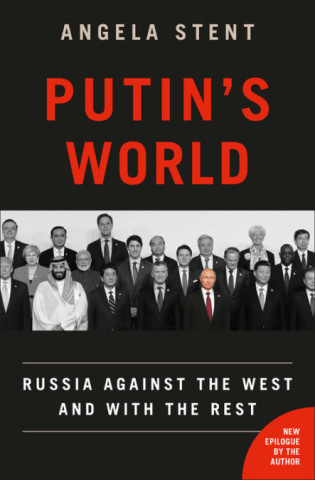

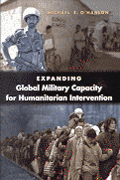
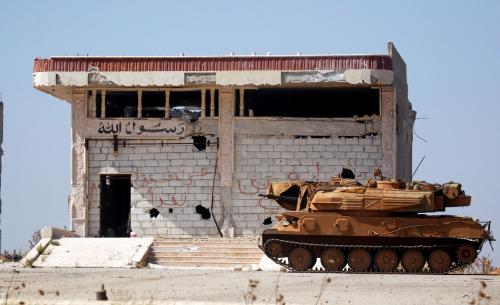
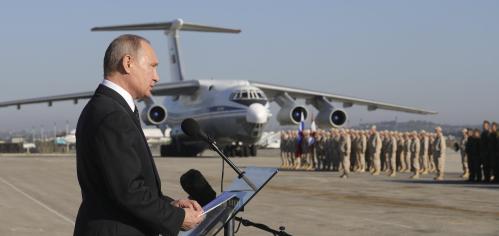
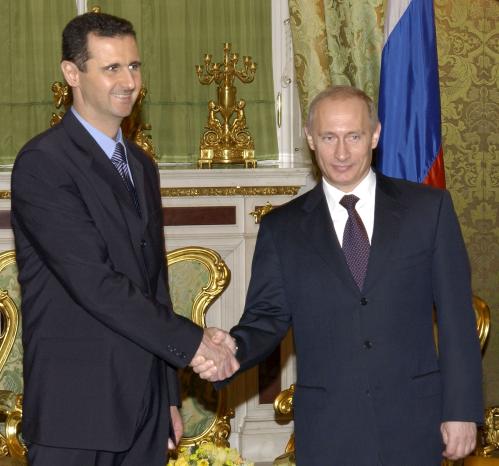


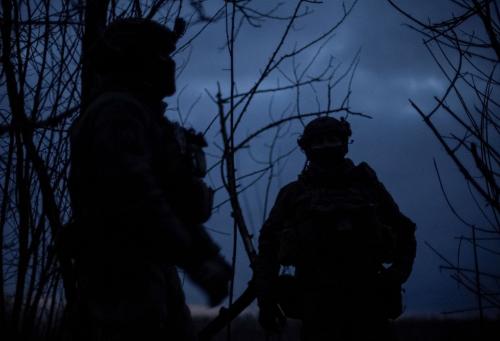
Commentary
Moscow gambles on raising the stakes—in Syria and across the board
October 7, 2016